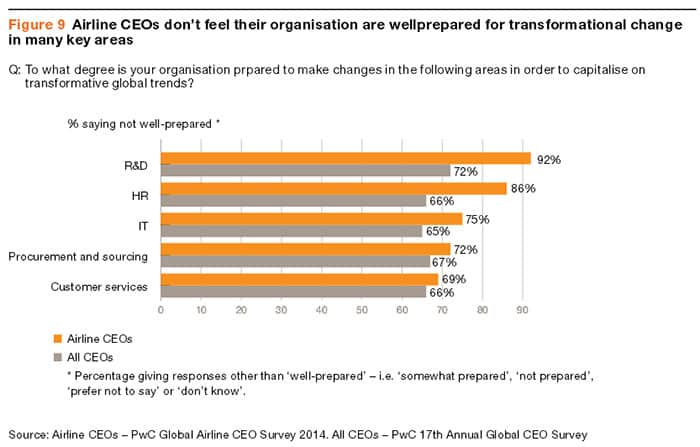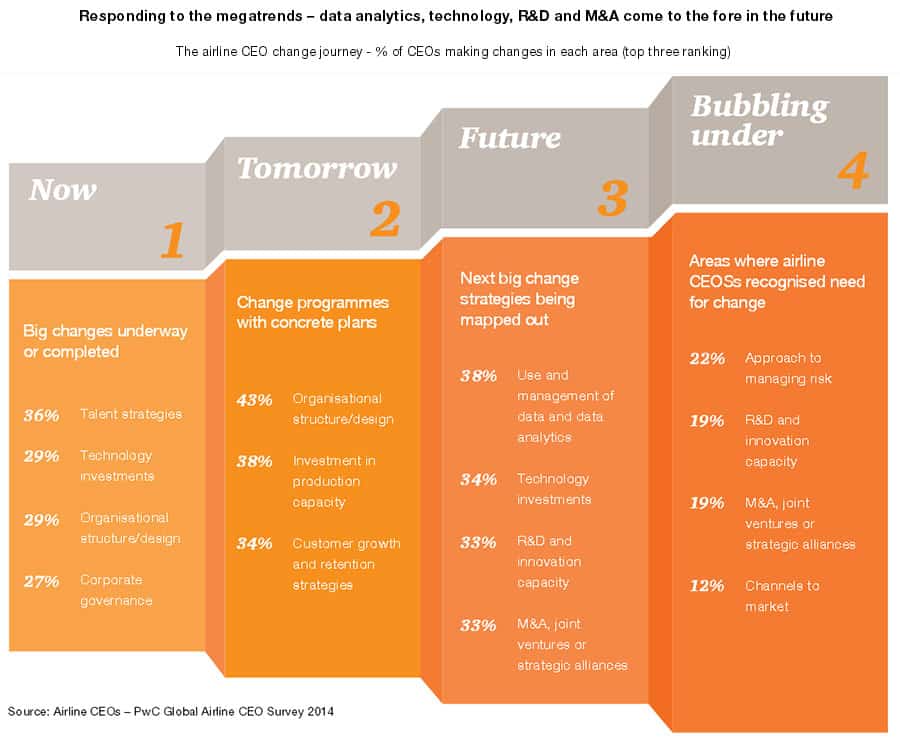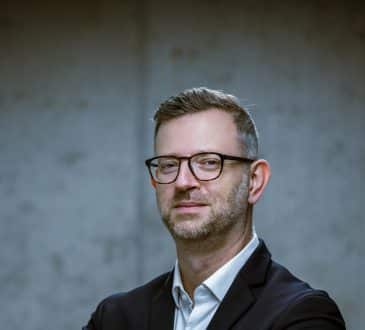How The Global Airline Industry Can Overcome Barriers To Growth And Innovation?

So what are the barriers which airline CEOs face when looking to expand? With the global economic realignment and rising profits, airline chief executives are looking to invest in research and development and planning to go on a hiring spree.
However, business leaders are concerned that they will not be able to find qualified candidates.
According to the 2014 Global Airline CEO Survey of over 1,300 CEOs in 68 countries by PricewaterhouseCoopers (PwC) suggests that availability of key skills is the biggest business threat to their organization’s growth.
Here are some of the most prevalent issues in the global airline industry:
Airline chief executives are more concerned than ever about being able to find the right people to fill these roles.
“The gap between the skills of the current workforce and the skills businesses need to achieve their growth plans is widening. Despite rising business confidence equating to more jobs, organisations are struggling to find the right people to fill these positions,” said Michael Rendell, Partner at PwC Global Head of HR Services practice.
Behind fuel costs, labour is the single largest operational cost – One of the biggest issues CEOs face is managing this cost.
Two in five chief executives said creating a more highly skilled workers should be one of government’s top priorities and over half of CEOs suggested regulation is hampering their ability to attract and retain talent into the business.
“CEOs are laying much of the blame for skills shortage at the feet of government and legislators, but they should accept that they need to re-think the way they think about, look for and value their employees,” Rendell said.
The airline industry faces a growing shortage in qualified pilots and increasing competition from other sectors for skills across a range of emerging needs.
Organisation reform continues to be important to achieving a lower cost base and further organisational design changes will also be needed if airlines are to become more customer-centric.
Inadequate infrastructure was cited as a concern by 79 percent of airline CEOs.
The area of critical focus is addressing talent challenges and related changes to organisational structure and design.
Airline CEOs are much more concerned about Over-regulation, increasing tax burden, consumer protection policies and the protectionist stances of national governments.
82% of airline CEOs are confident about airline industry revenue growth over next 12 months.
Q: What’s the next big thing to impact your business – the global airline industry?
A: Emerging middle class in developing countries will start to travel around the globe – Exponential increase in demand.
Q: What’s the next big thing to impact your business?
A: Open sky policy, air space control and airport infrastructure. These are the major hurdles to my business development.
Securing the leaders of tomorrow:
Long term workforce planning needs to be a central element in airline strategies, if they are planning to overcome the adverse demographic trends affecting their own workforces and the talent sources they traditionally drawupon.
To minimise increases in labour costs airlines will need to develop new strategies to attract and retain pilots in an increasingly competitive global market. These may include securing a pipeline through agreements with regional and smaller airlines, investing in or partnering with local governments in internal developmental academies, and re-negotiating existing collective bargaining agreements to remove or modify restrictive provisions.
To better capitalise on new opportunities that require skills in emerging fields, including social, mobile, cloud, analytics and retailing; airlines should increase recruitment in leaders from other industries that bring expertise in leading practices outside of the airline industry.
And better diversity strategies will help airlines widen the available talent pool and improve recruitment across entry and all other levels across the organisation.
Post your comments below.
Add CEOWORLD magazine to your Google News feed.
Follow CEOWORLD magazine headlines on: Google News, LinkedIn, Twitter, and Facebook.
This report/news/ranking/statistics has been prepared only for general guidance on matters of interest and does not constitute professional advice. You should not act upon the information contained in this publication without obtaining specific professional advice. No representation or warranty (express or implied) is given as to the accuracy or completeness of the information contained in this publication, and, to the extent permitted by law, CEOWORLD magazine does not accept or assume any liability, responsibility or duty of care for any consequences of you or anyone else acting, or refraining to act, in reliance on the information contained in this publication or for any decision based on it.
Copyright 2024 The CEOWORLD magazine. All rights reserved. This material (and any extract from it) must not be copied, redistributed or placed on any website, without CEOWORLD magazine' prior written consent. For media queries, please contact: info@ceoworld.biz
SUBSCRIBE NEWSLETTER










